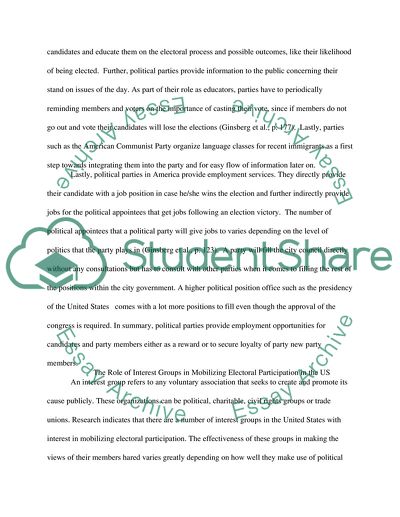Cite this document
(“The Role of Political Parties in Mobilizing Electoral Participation in Essay”, n.d.)
The Role of Political Parties in Mobilizing Electoral Participation in Essay. Retrieved from https://studentshare.org/politics/1834387-analytical-essay-2
The Role of Political Parties in Mobilizing Electoral Participation in Essay. Retrieved from https://studentshare.org/politics/1834387-analytical-essay-2
(The Role of Political Parties in Mobilizing Electoral Participation in Essay)
The Role of Political Parties in Mobilizing Electoral Participation in Essay. https://studentshare.org/politics/1834387-analytical-essay-2.
The Role of Political Parties in Mobilizing Electoral Participation in Essay. https://studentshare.org/politics/1834387-analytical-essay-2.
“The Role of Political Parties in Mobilizing Electoral Participation in Essay”, n.d. https://studentshare.org/politics/1834387-analytical-essay-2.


